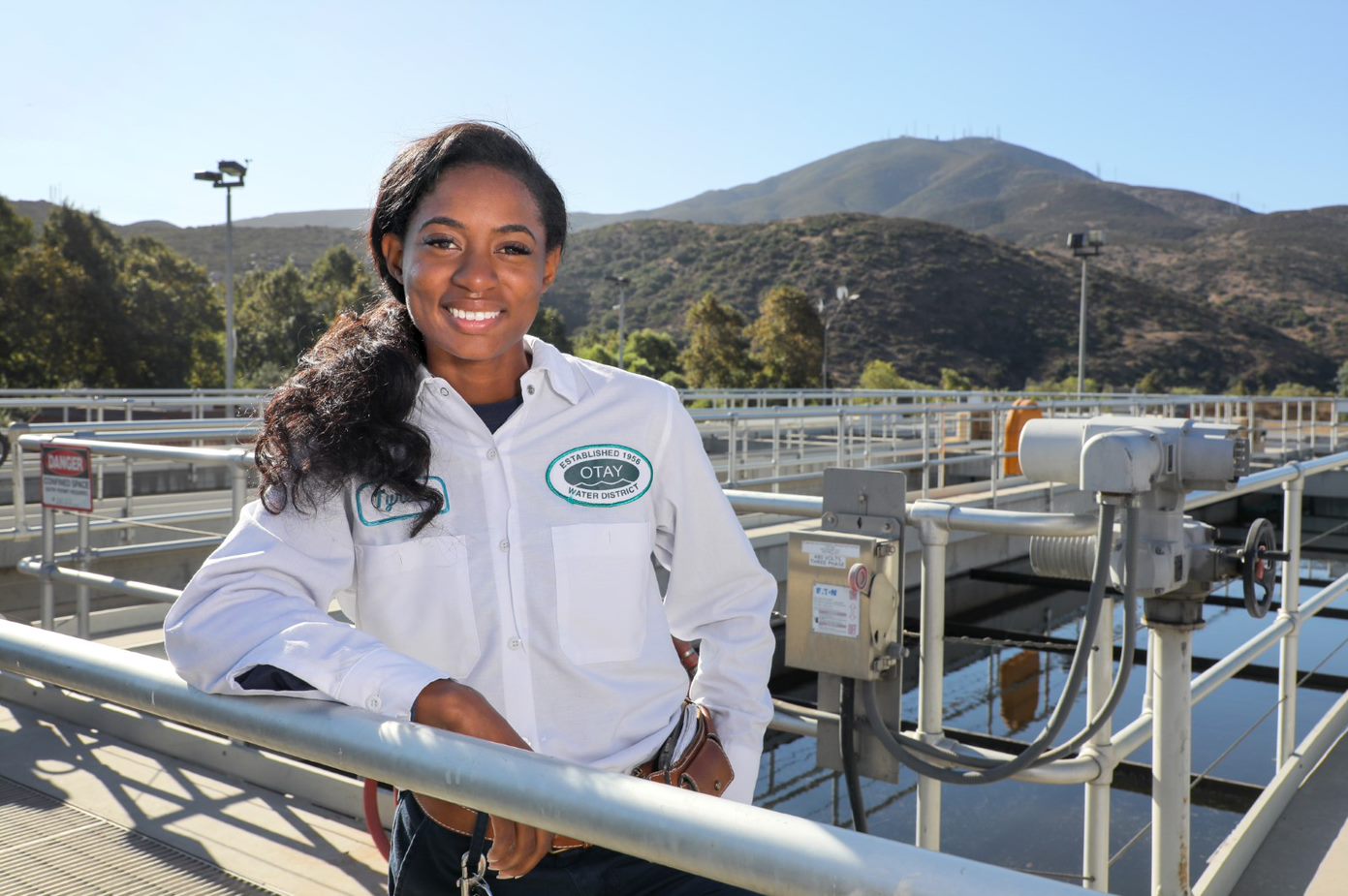
There are hundreds of interesting stories of how wastewater professionals made their way into the industry, especially for women who have entered a field historically dominated by men. Plant Operator II, Tyrese Powell-Slotterbeck’s journey began with a family connection.
“My father Gary is a Grade 5 wastewater operator, and it was his vision to get his daughters involved within the field,” Tyrese said. “Since I was a teenager, he encouraged me and my sister Tyler to get our certification as operators.”
While her sister took to the idea right away, Tyrese wasn’t so quick to get involved in the industry and admits to having a rocky start. At the time, she was a single mother. She also took some time to overcome the smell and dirty task, which she has since learned to love.
“My sister started her internship and later got certified,” she said. “I was still reluctant about the field. After a few years, I finally decided to take a leap of faith and start my internship, and follow my dad and sister’s footsteps.”
Tyrese started her journey in 2014 with a yearlong, unpaid internship at Victor Valley Wastewater Reclamation Plant before she was hired as an Operator-in-Training. She moved 150 miles downstate to the greater San Diego area along the way. She worked for two years for Veolia North America — an agency specializing in sustainable water, waste, and energy solutions — before moving to her previous position at Otay Water District in 2018, where she worked as a plant reclamation operator. In the past few months, Tyrese started a new position at Fallbrook Public Utility District.
Fallbrook Public Utility District provides imported water and sewer service to 35,000 residents living on 28,000 acres in the San Diego County city of Fallbrook. The District reports that about 30% of the water is used by agriculture. The District also produces about 1.5 million gallons of recycled water daily that is used to irrigate nurseries, playing fields, landscaped freeway medians, homeowners associations, and common areas.
FPUD imports water from the Colorado River and the State Water Project. The imported water is delivered by the San Diego County Water Authority. The potable water distributed by FPUD is treated at the Lake Skinner Filtration plant, just east of Temecula.
In the short six years since she completed her internship, Tyrese has worked her way up to Grade 3 and has gained valuable experience. Her primary focus is on producing reclaimed water, working with biosolids, activated sludge, maintenance, UV disinfection, and sewer systems.
“Obtaining my operator Grade 3 license was a huge accomplishment for me,” she said. “Since then, it encouraged me to have higher certification.”
Tyrese’s goal is to attain her Grade 5 certification within the next five years. She also plans to obtain other licenses that support her line of work that will enhance her skills as an operator.
Tyrese said that most people outside the wastewater field would be surprised by how important and valuable wastewater is, especially in how much technology is employed in the process of making recycled water that can be released back into the environment.
“Wastewater treatment plants can be self-sustaining facilities,” she said.
As a woman in a changing field that still primarily employs men, Tyrese said one of the biggest challenges she has faced is the expectations many people in the industry have when meeting her for the first time, whether through job interviews or in the field — they automatically assume she is a man because of her first name, Tyrese.
“It becomes very intimidating, and you have to work on building your confidence up,” she said. “Now I have to really outshine because I’m not what they expected.”
While it took some time for Tyrese to warm to the idea of working in the wastewater industry, she has now embraced the field and finds it a very exciting and ever-changing career. She said she would advise future and current women in the field to be persistent, strive for higher certification, and to exude confidence.
Photo: Courtesy of Tyrese Powell-Slotterbeck